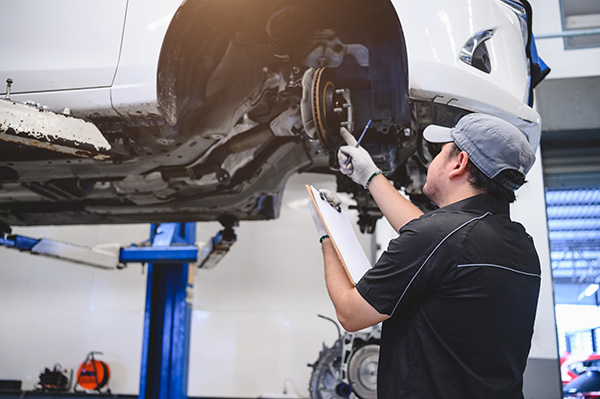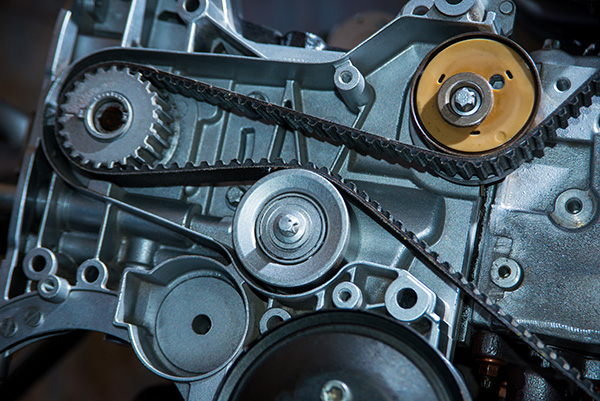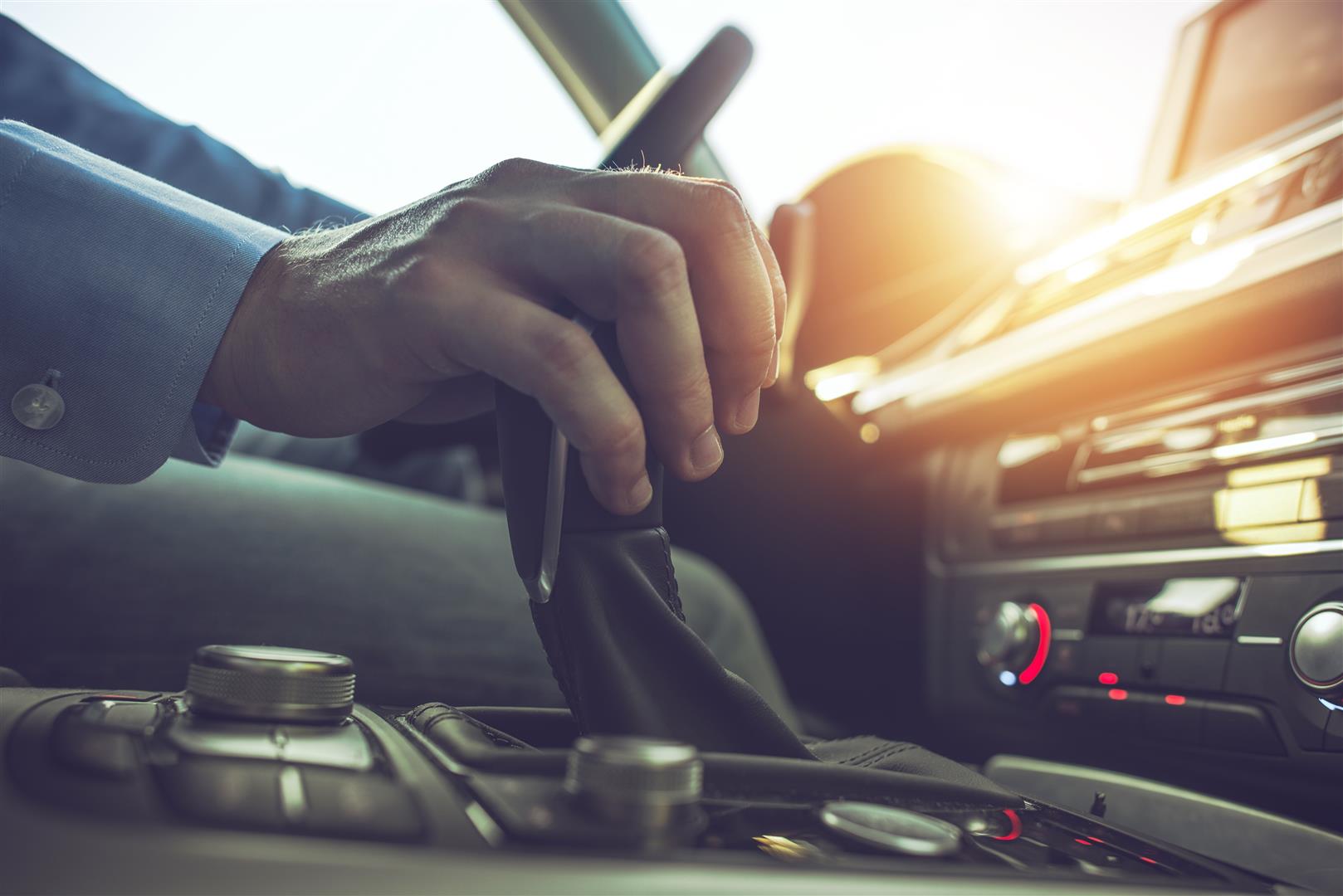Posted on 8/30/2024

As September approaches, Alaskans know that colder temperatures are just around the corner. The weather transition can be challenging, especially for those early morning school commutes when the roads start to ice over, and the chill in the air becomes noticeable. To ensure your vehicle is ready to handle the dropping temperatures and unpredictable road conditions, it's necessary to prepare your car in advance. Here's how you can get your vehicle ready for Alaska's school year commute. Begin with a Comprehensive Vehicle Inspection Before the cold truly sets in, give your car a thorough inspection. This step is often overlooked, but identifying and addressing potential issues now can prevent significant problems later on. Start by checking your car's battery, as colder weather can reduce its performance. If your battery is over three years old, you might want ... read more
Posted on 7/26/2024

Sport Utility Vehicles, commonly known as SUVs, have grown in popularity over the past few decades. From their rugged looks to their versatile functionality, SUVs appeal to a wide range of drivers. But what exactly makes these vehicles so appealing? Why should you consider owning one? Let's explore the key benefits that come with owning an SUV and why they might be the perfect choice for your next vehicle. 1. Enhanced Safety Features One of the primary reasons many people opt for SUVs is their superior safety features. SUVs are generally built with a higher ground clearance and a more robust frame compared to sedans or hatchbacks. This not only offers better visibility on the road but also provides added protection in the event of a collision. Many modern SUVs come equipped with advanced safety technologies such as blind-spot monitoring, lane departure warning ... read more
Posted on 6/28/2024

Planning a road trip? Discover how to make your journey about the destination and the delightful moments along the way. Here are ten stress-free road trip ideas to enhance your driving experience and make every mile memorable. 1. Explore Scenic Routes Take the scenic route and let the journey itself become an adventure. Whether it's coastal highways, mountain passes, or countryside lanes, choose routes that offer breathtaking views and picturesque landscapes. Stop at lookout points, snap photos, and breathe in the fresh air to rejuvenate your spirit. 2. Pack Healthy Snacks and Drinks Fuel yourself with nutritious snacks and hydrating drinks to keep energy levels high and maintain focus on the road. Opt for easy-to-pack items like fruits, nuts, granola bars, and plenty of water. Avoid sugary treats that can lead to energy crashes. 3. Create a Fun Playlist Curate a road trip playlist with upbeat tunes that complement the mood o ... read more
Posted on 5/31/2024

Alaska's breathtaking landscapes and endless summer days make it a top destination for adventurous road trips. However, preparing your car for Alaskan summer adventures requires more than just filling up the gas tank. The state's unique terrain and weather conditions can pose significant challenges, making it necessary to get your vehicle ready to tackle everything from gravel roads to mountain passes. 1. Perform a Comprehensive Vehicle Check Before hitting the Alaskan highways, performing a comprehensive vehicle check is crucial. Start with the basics: oil, coolant, brake fluid, and windshield washer fluid. Ensuring these are at optimal levels is vital for your car's performance and reliability. Next, inspect your tires for wear and proper inflation. Alaska's diverse terrains demand tires with good tread depth and durability. Consider investing in all-terrain ... read more
Posted on 4/29/2024

Your car's brakes are crucial for safety on the road, but when was the last time you thought about their maintenance? Brake system flushes are an essential aspect of brake care that often goes overlooked. The Brake Fluid Brake fluid is the lifeblood of your vehicle's braking system, transferring force from the brake pedal to the brake components. Over time, brake fluid can accumulate contaminants like moisture, dirt, and debris, compromising its effectiveness. A brake system flush involves draining and replacing the old fluid with fresh, clean fluid to ensure proper brake operation. Signs You Need a Brake System FlushBrake Fluid Appearance If your brake fluid appears dark or murky, it's a clear indicator that it's time for a flush. Fresh brake fluid should be clear and transparent, so any discoloration signals the presence of contaminants that can compromise brake performance. Soft or Spongy Brake Pe ... read more
Posted on 3/29/2024

Have you ever wondered what keeps the various components of your car's engine in sync, ensuring smooth operation and optimal performance? Enter the timing belt and timing chain – two essential components that play a crucial role in the engine operation process. The Timing Belt: A Precision Performer The timing belt, also known as a cam belt, is a toothed rubber belt that connects the crankshaft and camshaft(s) in an engine. Its primary function is to synchronize the engine's valves' opening and closing with the pistons' movement. As the crankshaft rotates, it drives the timing belt, which in turn rotates the camshaft(s) at precisely timed intervals. This ensures that the valves open and close at the correct moment, allowing air and fuel to enter the combustion chamber and exhaust gases to exit. The Ti ... read more
Posted on 2/29/2024
%20(Small).jpeg)
Owning a Toyota is not just about driving a reliable vehicle; it's also about ensuring its longevity through proper maintenance practices. We will take a look at the best and worst maintenance practices for your Toyota, helping you understand how to care for your vehicle to keep it running smoothly for years to come. The Best Maintenance Practices Regular Oil Changes Regular oil changes are fundamental for maintaining the health of your Toyota's engine. Engine oil serves as a lubricant, reducing friction between moving parts and preventing premature wear and tear. By adhering to Toyota's recommended oil change intervals, typically every 5,000 to 7,500 miles, you ensure that your engine remains properly lubricated, promoting longevity and efficiency. Scheduled Inspections Following Toyota's prescribed maintenance schedule is crucial for proactively identifying potential issues before they escalate into more significant problems. During scheduled ins ... read more
Posted on 1/27/2024
.jpeg)
As a responsible car owner, it's important to dispel the myths surrounding vehicle maintenance. By doing so, you can save yourself from unnecessary expenses and ensure the longevity of your car. Let's take a look at the most popular ones and what our team of mechanics actually thinks about them. Myth 1: Engine Oil Should Be Changed Every 3,000 Miles Contrary to popular belief, modern engines and high-quality oils have extended the interval for oil changes. Consult your owner's manual for the recommended schedule. Myth 2: Premium Fuel Boosts Performance in All Cars While premium fuel benefits some high-performance engines, most cars are designed to run efficiently on regular gasoline. Myth 3: You Can Judge Tire Pressure by Looking at the Tire Tires can be underinflated without appearing flat. Use a ... read more
Posted on 12/24/2023
.jpeg)
As we travel through life, our vehicles become more than just a way to get from one place to another. They're like trusted companions that help us explore the world. But sometimes, things go differently than planned, and we may face unexpected problems with our cars. In this guide, we'll talk about seven common car issues that many people face. We'll explain what they are, how to avoid them, and what you can do to keep your car running smoothly. So, whether you're a seasoned driver or a new car owner, this guide will help you understand some of the common problems that cars can face, and how to deal with them. 1. Tire Troubles Your car tires are important for your trip. They hold up the weight of your car and help it move on different roads. Not taking care of your tires can cause them to wear out unevenly, get holes, or burst. To avoid these problems, make sure you check your tire pressure often, rotate your tires, and check that they are corr ... read more
Posted on 11/29/2023

In the world of automotive engineering, even a single gear can make a substantial difference. For those pondering over the intricacies of transmission systems, understanding the contrast between six and seven-speed transmissions is more than just counting gears—it's about performance, fuel efficiency, and driving smoothness. The Essence of Transmission Systems Before we compare specific gear numbers, it's crucial to grasp the role of a transmission in a vehicle. Its primary function is to ensure that the right amount of power reaches your wheels to drive at a given speed. It allows for efficient engine operation while keeping RPMs (revolutions per minute) within a reasonable range. Six-Speed Transmission The six-speed transmission has been widely regarded as a standard in providing a balance between fuel economy and acceleration. With six ratios to choose from, the engine can perform optimally by staying closer to its power band—the range where it operates ... read more